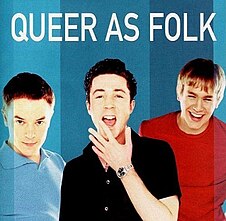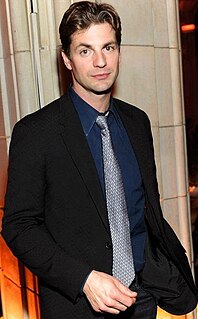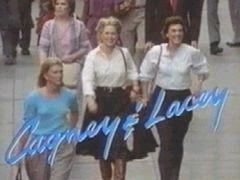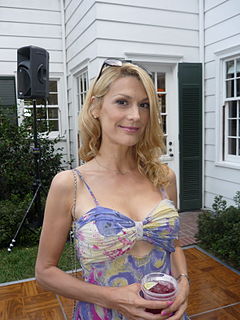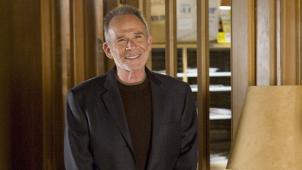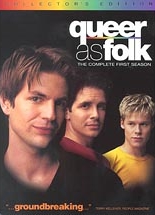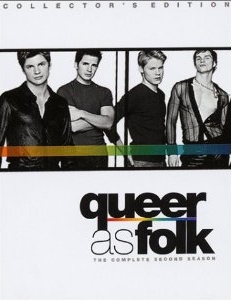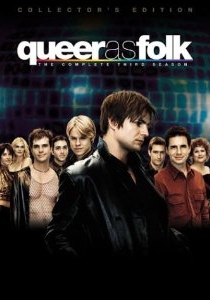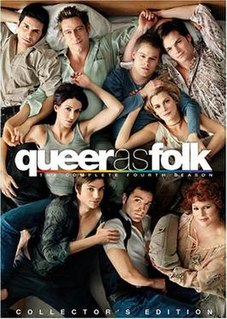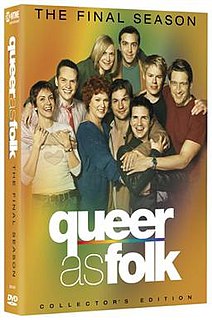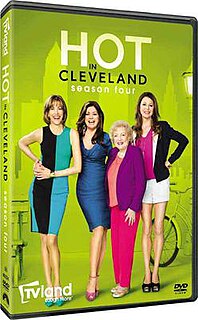Plot
The first episode finds the four friends ending a night at Babylon, a popular gay club. Brian picks up and has sex with Justin, who falls in love with him and eventually becomes more than a one-night stand. Brian also becomes a father that night, bearing a son with Lindsay through artificial insemination.
Michael's seemingly unrequited love for Brian fuels the story, which he occasionally narrates in voice-over. Justin's coming out and budding relationship with Brian has unexpected effects on Brian and Michael's lives much to Michael's dismay as Justin is only 17 years old. Justin confides in his straight high-school friend Daphne, while struggling to deal with homophobic classmates and his dismayed, divorcing parents, Craig and Jennifer. Later in the second season Justin and Michael co-create the sexually explicit underground comic Rage, featuring a "Gay Crusader" superhero based on Brian.
Brian's son Gus, being raised by Lindsay and Melanie, becomes the focus of several episodes as issues of parental rights come to the fore. Ted is Melanie's accountant who once harbored a longstanding crush on Michael. He and Emmett begin as best friends, but briefly become lovers later in the series. Their relationship ends as Ted, unemployed and with a criminal record earned from running a legitimate porn website that was targeted by a Chief of Police running for Mayor, becomes addicted to crystal meth.
In the fourth season, Brian, who has lost his job by assisting Justin in opposing an anti-gay political client, starts his own agency. He also discovers he has testicular cancer and hides his treatment from his friends. Michael marries Ben Bruckner, an HIV-positive college professor, and the couple adopts a teenage son, James "Hunter" Montgomery, who is also HIV-positive as a result of his experiences as a young hustler.
Ted's affair with a handsome crystal meth addict, Blake Wyzecki, sets the pattern for Ted's later tragic but ultimately redeeming experiences with drug addiction.
Melanie and Lindsay's relationship, while on the surface seeming more of a "stable" relationship, is actually quite tumultuous. Each cheats on the other at various points in the series; both tackle on a threesome shortly after they marry and become separated for much of the 4th and 5th seasons. Melanie is impregnated by Michael (through artificial insemination, as Lindsay was) in the third season, so that best friends Brian and Michael become co-fathers to Lindsay and Melanie's children.
Melanie gives birth to a girl, Jenny Rebecca, over whom Melanie, Lindsay, and Michael have a brief legal custody battle following the women's transitory break-up. Brian's new advertising agency, Kinnetik, becomes highly successful both through a combination of Brian's customer loyalty and his edgier advertising. As a result of this, Brian is able to purchase Club Babylon from its bankrupt owner.
In the fifth and final season the boys have become men, and the series, perhaps more comfortable in its role in gay entertainment, tackles political issues head-on and with much more fervor.
A political campaign called "Proposition 14" is depicted during much of the final season as a looming threat to the main characters. This proposition, like so many real-life recent legislative moves that have affected many U.S. states, threatens to outlaw same-sex marriage, adoption and other family civil rights. The many ways in which such a proposition would affect the characters are depicted through nearly every episode.
Debbie, Justin, Jennifer, Daphne, Emmett, Ted, Michael, Ben, Lindsay, Melanie and the children are depicted standing up and fighting against this proposition both by active canvassing, political contributions and other democratic processes, but are met with staunch opposition, discrimination, outright hatred and political setbacks.
The show climaxes near the end of the series when a benefit to support opposition to Proposition 14 hosted at Brian's club Babylon (after repeated relocations of the benefit, due to discrimination) is attacked by a bomb that initially kills 4, and eventually another 3 and injures 67.
This horrible event sets the bittersweet tone for the final three episodes, in which Brian, frightened by this third possible loss of Justin, finally declares his love for him. The two even plan to marry, but Justin's artistic abilities get noticed by a New York art critic and the two decide, for the time being at least, in favor of a more realistic approach to a stormy relationship that nevertheless works for their characters. Melanie and Lindsay, realizing they have more in common than they don't, resume their relationship but relocate to Canada to "raise [their children] in an environment where they will not be called names, singled out for discrimination, or ever have to fear for their life."
Emmett becomes a Queer-Eye type TV presenter but is later fired when professional football player Drew Boyd kisses him on the news to signify his coming out. Ted confronts his midlife crisis head-on and finally reunites with Blake. Hunter returns and the Novotny-Bruckner family perseveres.
The series came full circle with the final scenes staged in the restored Babylon nightclub. In the final scene, Brian dances to Heather Small's "Proud," a song that accompanied a pivotal scene between Brian and Michael in the very first episode of the series. It ends with a final narration by Michael:
So the "thumpa thumpa" continues. It always will. No matter what happens. No matter who's president. As our lady of Disco, the divine Miss Gloria Gaynor has always sung to us: We will survive.
Cultural implications
The American version of Queer as Folk quickly became the number one show on the Showtime roster. The network's initial marketing of the show was primarily targeted at gay male (and to some extent, lesbian) audiences, yet a sizeable segment of the viewership turned out to be heterosexual women.
Groundbreaking scenes abounded in Queer as Folk, beginning with the first episode, containing the first simulated sex scene between two men shown on American television (including mutual masturbation, anal sex, and rimming), albeit more tame than the scene it was based on in the UK version.
Despite the frank portrayals of drug use and casual sex in the gay club scene, the expected right wing uproar, besides some token opposition, never materialized. [1] Cowen and Lipman, however, admitted in 2015 that they were surprised by a backlash from some quarters of the LGBT community, fearing negative implications that may result from the show. [1]
Controversial storylines which have been explored in Queer as Folk have included the following: coming out, same-sex marriage, ex-gay ministries, recreational drug use and abuse (cocaine, methamphetamine, ecstasy, GHB, ketamine, cannabis); gay adoption, artificial insemination, vigilantism, Autoerotic asphyxiation, gay-bashing, safe sex, HIV/AIDS, casual sex, cruising, "the baths," serodiscordancy in relationships, underage prostitution, actively gay Catholic priests, discrimination in the workplace based on sexual orientation, the internet pornography industry, and bug chasers (HIV-negative individuals who actively seek to become HIV-positive).
The series, at times, made humorous reference to its image in the gay community. A few episodes featured the show-within-a-show Gay as Blazes, a cheesy, dull, badly acted, and abundantly politically correct drama which Brian particularly disagreed with, and which was eventually cancelled.
Cultural implications in the Asian context
Acting as one of the pioneering dramas depicting gay characters from a complex perspective, alternative media and platforms within Asia had also adopted the drama. In the case of South Korea itself, the Queer film festivals (first labelled as a "scandal" in 1998) was slowly accepted and even popularised across the South Korean society - Queer as Folk played a significant role when it was screened during the festival in 2000, providing a narrative for an alternative lifestyle especially with respect to the LGBT community. [2]
Cast's real-life sexual orientation
The actors' real-life sexual orientation have been the subject of speculation from the public. In a 2015 Queer As Folk reunion, actors Gale Harold and Scott Lowell said they refused to discuss their own sexuality in the press, at least during the show's first season, in an effort to lessen distractions, [3] which was corroborated by Lipman, who went on to say that during the show's first season, even he didn't know about their real-life sexuality. [4]
In an interview on CNN's Larry King Live on April 24, 2002, show host Larry King described Randy Harrison and Peter Paige as gay, and Michelle Clunie, Robert Gant, Thea Gill, Gale Harold, Scott Lowell, and Hal Sparks as straight. [5] In July that same year, however, Gant came out as gay in an article on The Advocate . [6] In 2004, Gill, still married to director Brian Richmond at the time, came out as a bisexual in an interview with Windy City Times . [7]
Meanwhile, Sharon Gless's life as a woman married to a man was already well known by the time Queer as Folk was in production, having married Barney Rosenzweig in 1991. [8] She has been described as a straight woman. [9]
In the years since Queer as Folk ended, Harold, [10] Harrison, [11] Lowell, [12] Paige [13] and Sparks [14] [15] have openly discussed their sexual orientation in gay publications.



